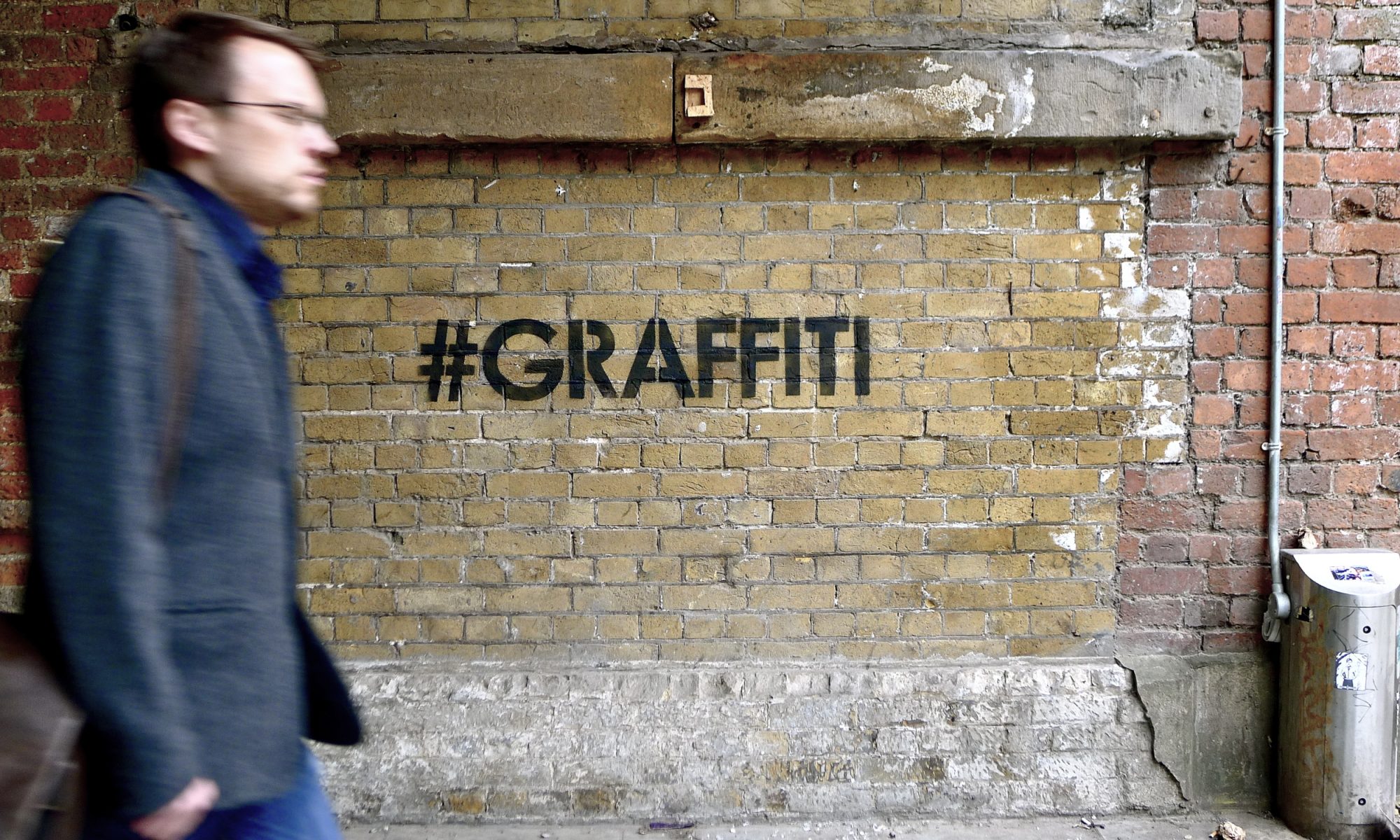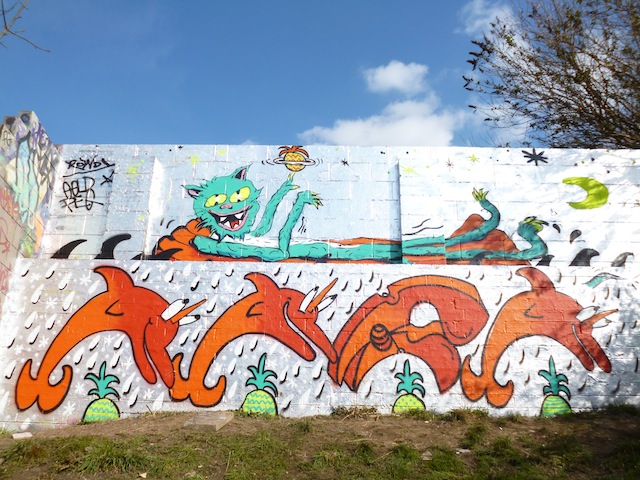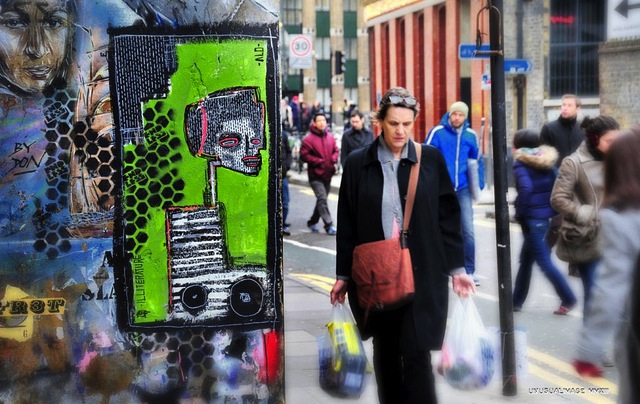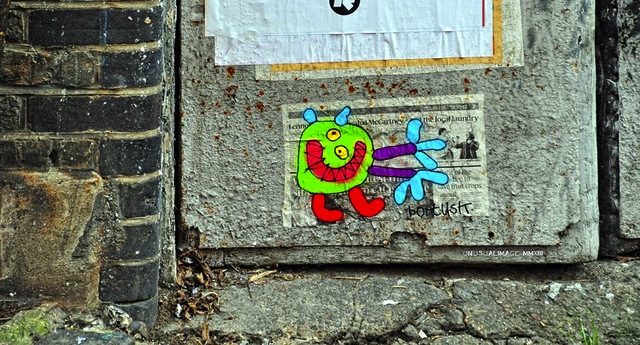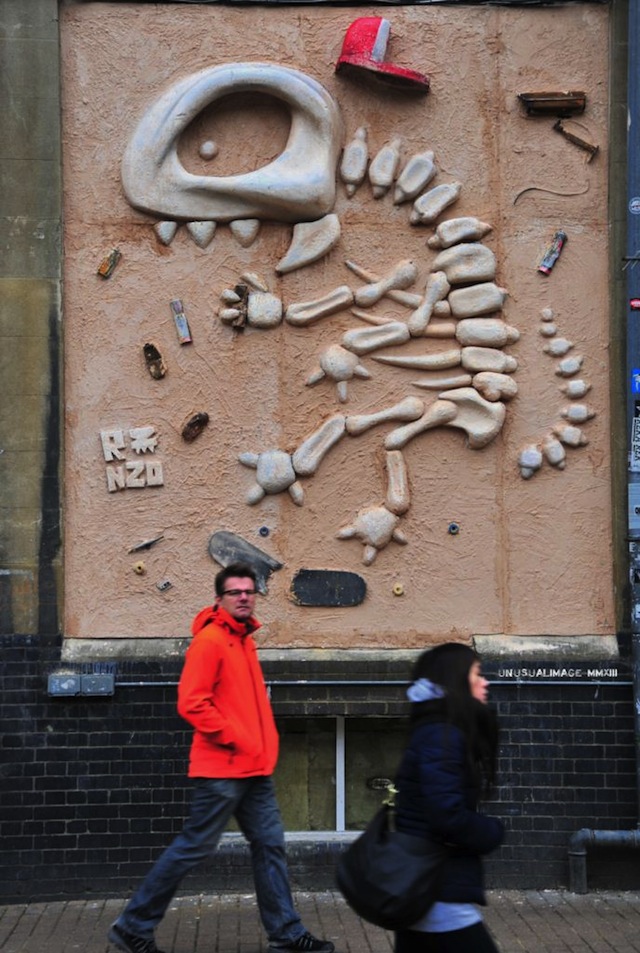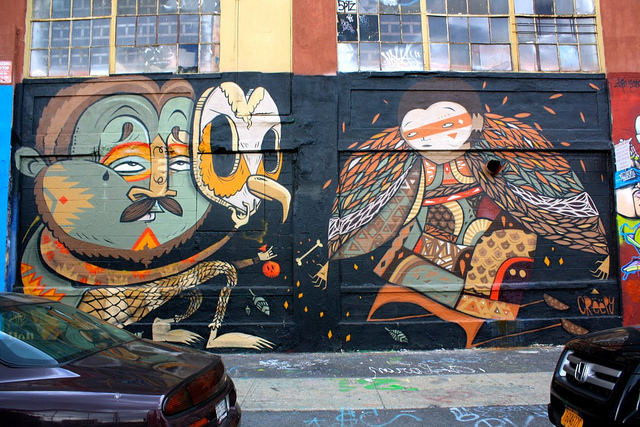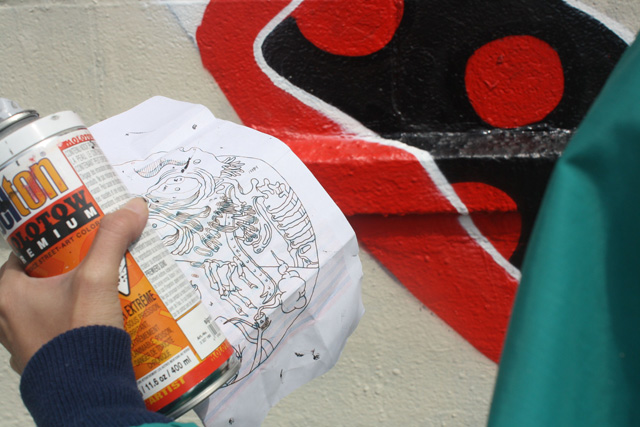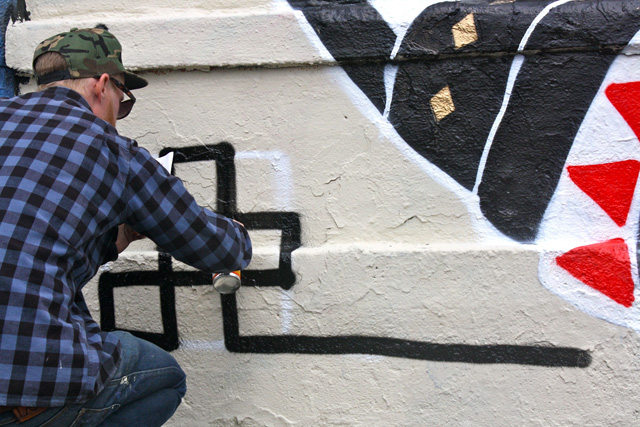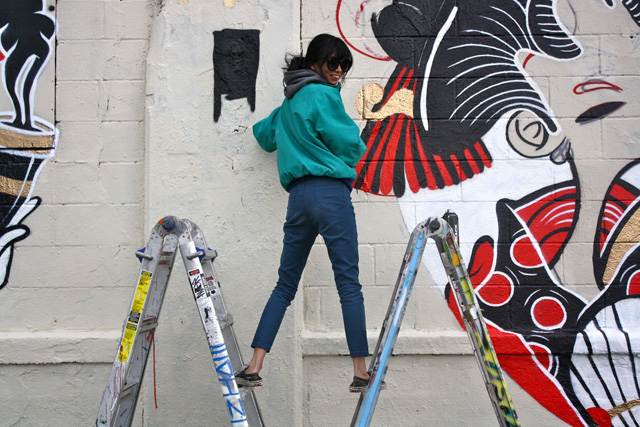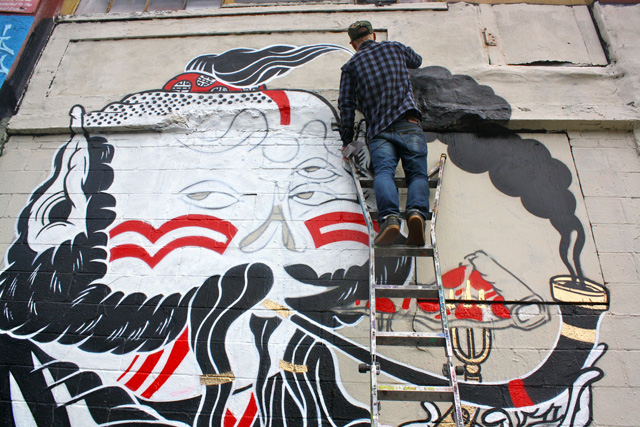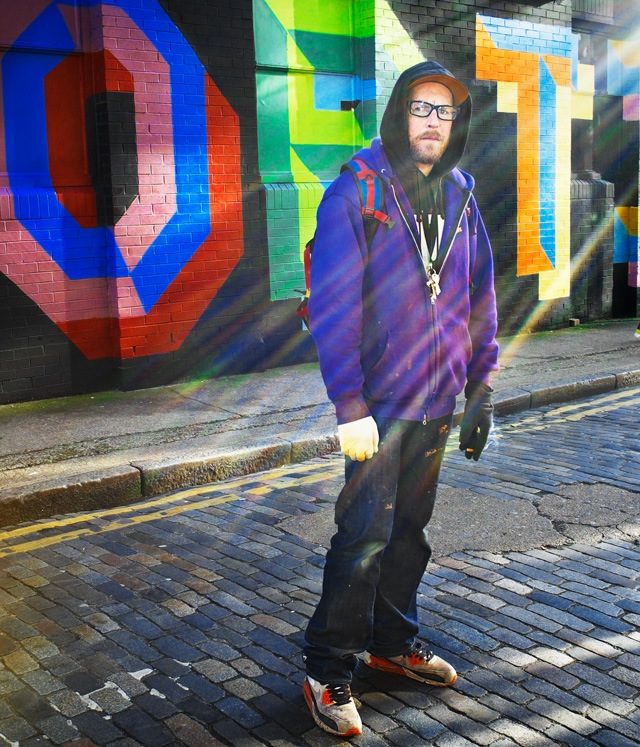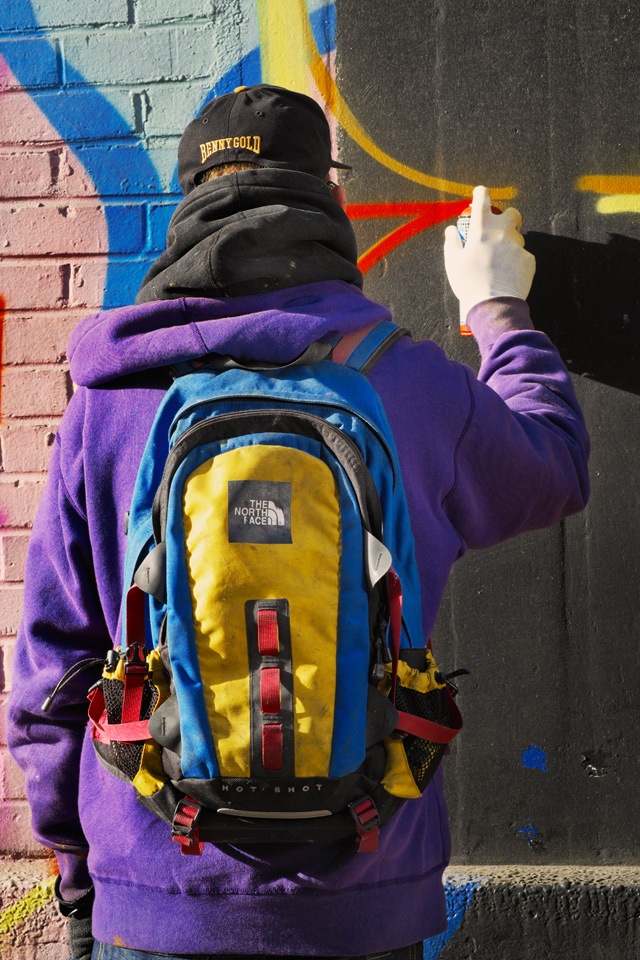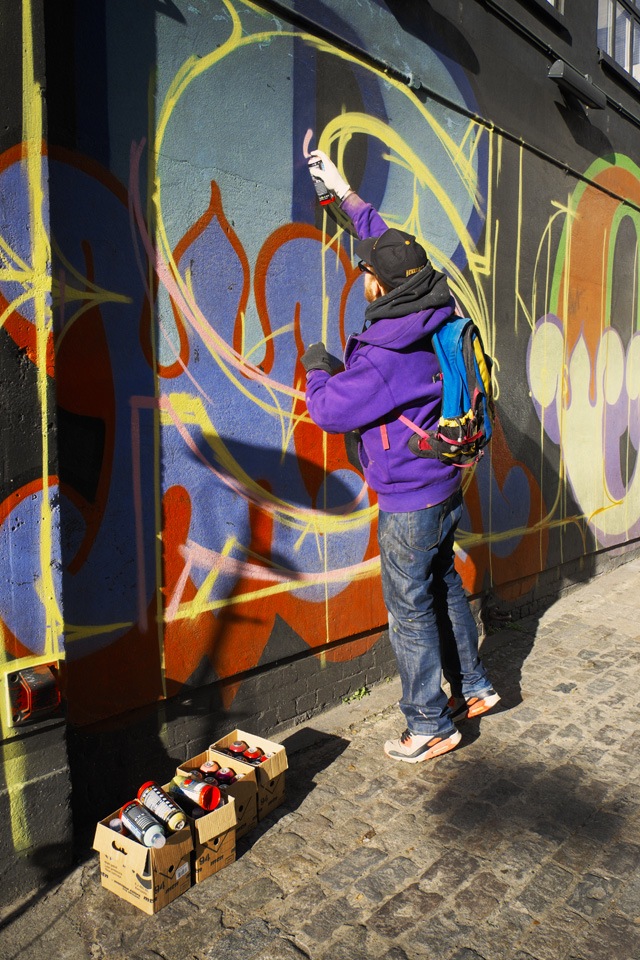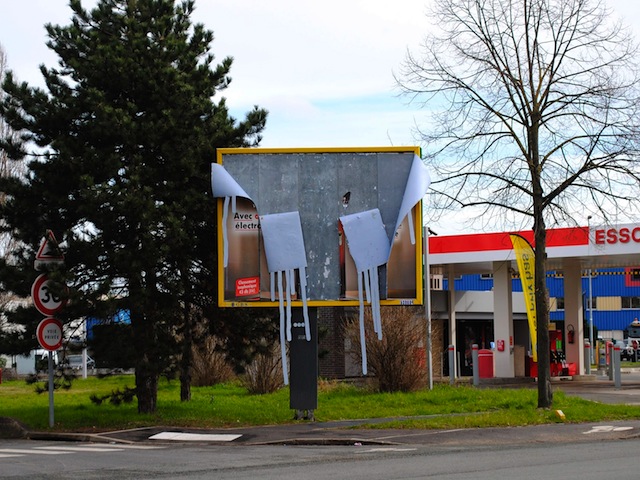For the past few years stencil artist Vexta has been enjoying what she likes to call her “endless summers.” Being an Aussie, the artist tries to avoid cold weather in any way possible; this year that meant escaping to Kochi, India for the country’s first biennial. Vexta sat down to talk with Vandalog about her experiences painting in a small town in India, being a woman artist, and the public’s reaction to her visually intense imagery.
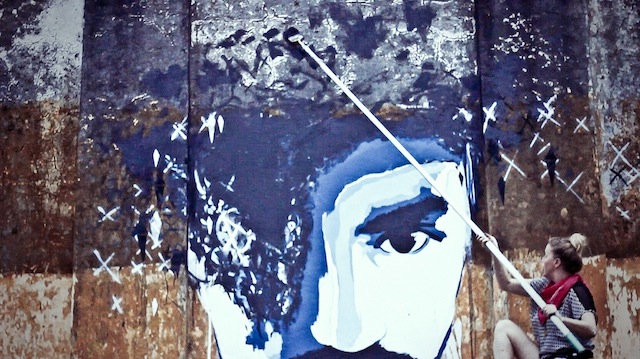
R: What was it like to paint during India’s first biennale?
V: It was my first time in India so it was a lot of things – fun, challenging, confronting at times, really hot & dirty (I would seriously shower 3 or 4 times a day sometimes), late nights and early mornings, super rewarding, hard work and there were some great parties too. The whole of Fort Kochi was full of incredible artists from India and around the world there to paint, perform and create mostly site-specific artworks. It was pretty great.
R: Especially given that India is not traditionally thought of as a mural hot-spot?
V: Yeah I was surprised to see any other murals at all – I thought I might be the only artist painting on the streets but when I got there, there was already some graphic sprawling works going up and by the time I left other artists had started to get up and travel to Kochi just to get involved. The street art definitely changes the city, in a good way.
R: What was the community’s response to the walls?
V: Generally people were inquisitive, and sometimes a bit confused, I mean it’s a small city in India, some people had never seen or heard of street art before.
I had some really great responses from people on the street – one great response I had was this beautiful and serious 9 year old boy who spent hours watching me paint and asking me super thoughtful questions about painting, street art and the art world and his own artworks. Then he brought his whole family to meet me and see my work and they all came to my exhibition opening. He was easily the youngest person there. It’s moments like that which make me love making public work, there is no way he would have ever stepped into the gallery if we hadn’t met on the street. Other times some men would be confused as to why I was a women, was working on the street painting. A couple of them they told me I should be at home looking after the kitchen or something, that was definitely confronting.
R: Can you talk about the specific site you were given to paint.
V: So when I got there, the gallery space which was showing my painting had arranged a couple of walls for me in Kochi, I then found more myself. It’s always part of the adventure, right? Driving around scouting spots, talking to people, convincing people who’ve never even heard of street art or myself to let me paint a giant painting on their wall!
Mostly I looked for walls that were already beautiful in some sense, peeling paint, old and falling apart, moss and plants growing on them. Kochi has a lot of very old Portuguese architecture which is beautiful with a strong sense of history. I wanted the pieces to form a kind of path through the centre of the old town so you could go from piece to piece and thematically they’d link together, like a story.
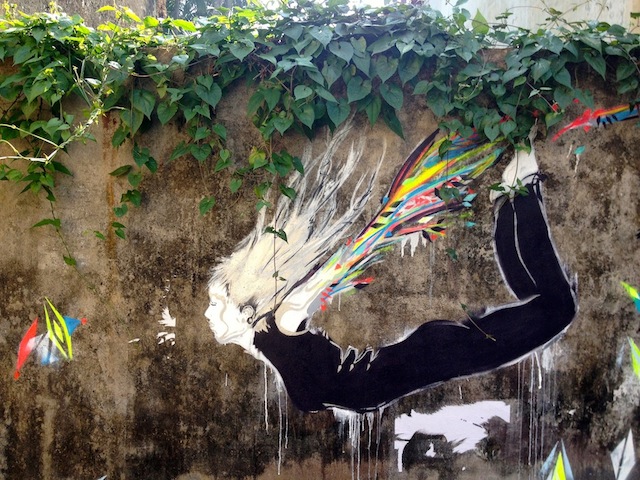
R: How does your work interact with the location?
V: My street work is really site specific. I had a bunch of sketches I’d prepared for India but then changed things up when I got there. I felt like it was really important to explore creating work that not only reflected my experience of being a woman but also to create something for the women of Kochi. Obviously there’s a connection between the women and the birds and ideas about freedom.
I also painted a lot of skeleton crows in the pieces. The local Kerala crow is everywhere. For instance the massive painting I made of a girl with neon bird wings who is perched on the wire with bird feet, that wall attracts so many crows at dusk, so when the real birds take off and land. It’s like they are coming out of the work on the wall & wire.
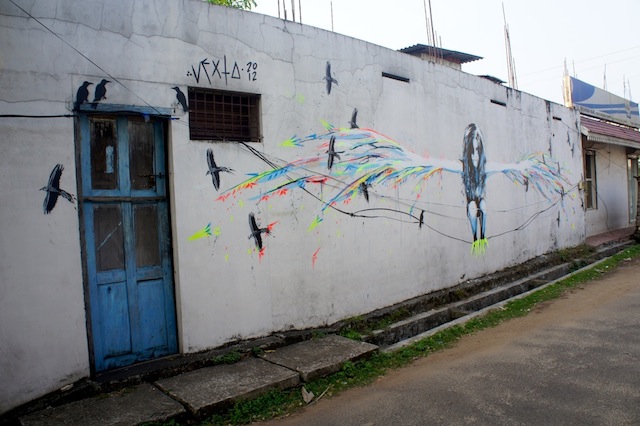
All photos courtesy of Vexta



